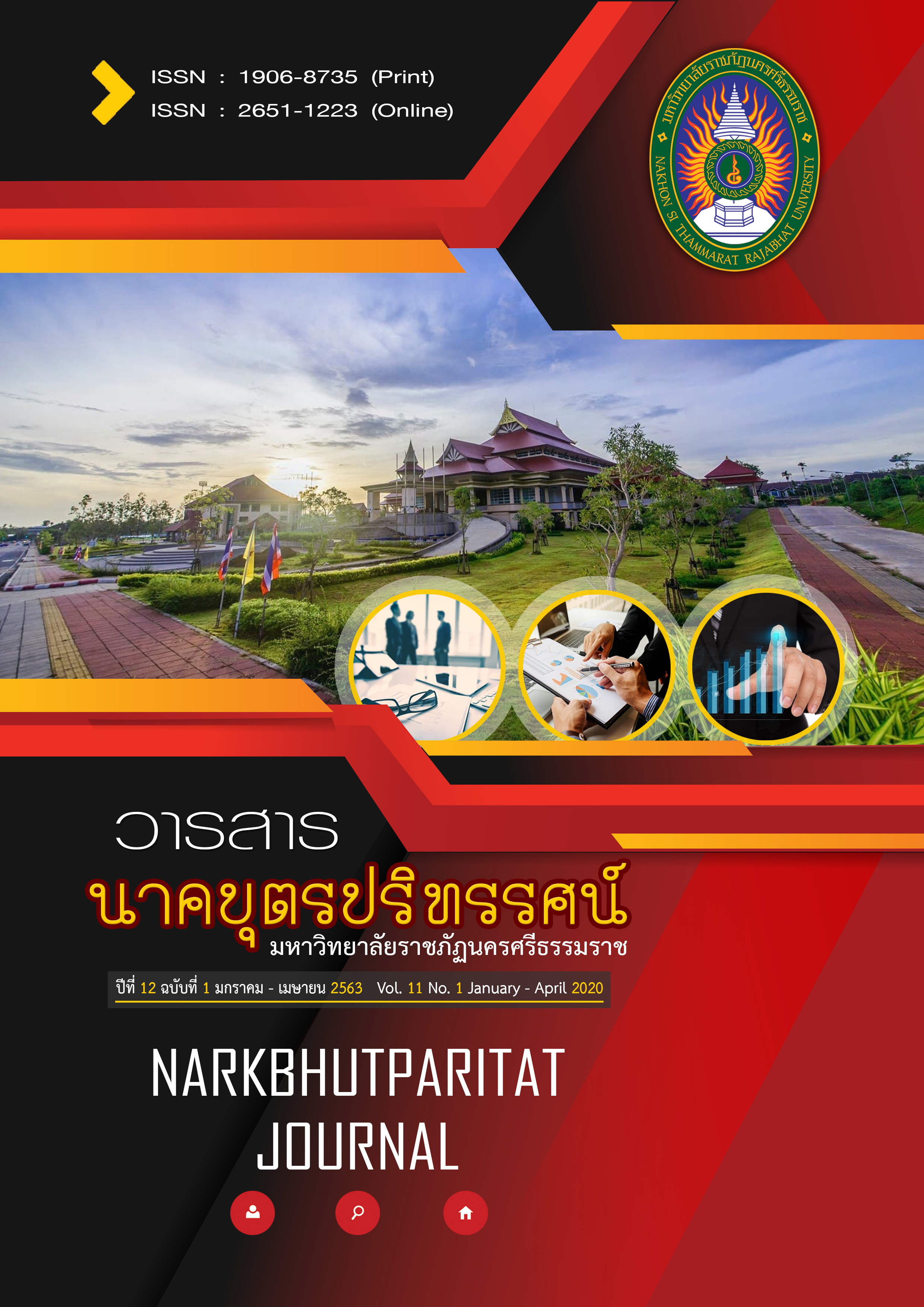การเปรียบเทียบพฤติกรรมการออมเพื่อการวางแผนการเกษียณของกลุ่มประชาชนทั่วไป กับกลุ่มข้าราชการ A comparison of saving behaviors for retirement in general public and officials
Main Article Content
Abstract
In this work, we aim at studying saving behaviors for retirement in general public and officials. For that, we conduct experiments on the population of Bangkok to investigate the relevancy of factors in saving behaviors. Specifically, the experiments are conducted on 600 populations containing both the general public and officials. They are chosen according to non-probability sampling, where our sampling approach is done randomly at multiple stages. Questionnaires about saving behaviors and management before retirement are used. The result shows that the correspondence index is 1.00 and the confidence value is 0.89. These values are measured by F-test and are reported allegorically.
Our experimental results reveals that the general public who have savings are: male, 31 – 40 years old, married, having 4 or more family members, having 1 child in custody, having income, and having average expense about 30001 or more. On the other hand, the officials who have savings are: female, 41 – 50 years old, married, having 4 or more family members, having no children, having income, and having average expense about 30001 or more.
Finally, we realize that an occupation (i.e. general publics and officials) does not influence saving behaviors. Indeed, they do savings but their saving limit might be different. On average, they can save 1000 – 5000 THB for each month and carry on for 1 – 5 years. Each occupation often performs saving with financial institutions and normally acquires information about money management tips from friends and families. Their saving purposes are also different. On the one hand, the general publics do savings for the education of their children. On the other hand, the official do savings for their future need, especially in emergency.
Article Details
References
Financial literacy department Bank of Thailand (2016). Report of the Financial Skills Survey of Thailand 2016. Bangkok: Bank of Thailand. (in Thai)
Fiscal Policy Office Ministry of Finance. (2015). The coverage of the Thai pension system. Retrieved 2018, December 1, from www.fpo.go.th/S-I/Source/Article/Article146.pdf.
Hamamanee, S. (2013). Forms and Factors Affecting Household Savings in Bangkok Metropolis. The National Academic Conference 2013, Association of Private Higher Education
Institutions of Thailand.(in Thai)
Kusirisin, P. (2008). Factors affecting household saving. In the Mueang district Chiang Mai Province. (Master of Economics). Chiang Mai University. (in Thai)
National Statistical Office. Population. Retrieved 2018, December 2, from https://portal.nso.go.th/otherFranco Modigliani.
Office of the Securities and Exchange Commission. (2014). Creating financial stability after Retired for Thais. Retrieved 2015, December 2, from https://www.sec.or.th/EN/Documents/Information/ResearchesStudies / research_retirement.pdf
Roekksanat, J. (2012). Comparison of saving behavior among employees of private companies and civil servants in the area. Bangkok. (Master of Business Administration). Rajamangala University of Technology Thanyaburi. Faculty of Business Administratio. (in Thai)
Suwanan, T. (2010). Factors affecting household saving behavior. (Research report). Faculty of Business Administration Rajamangala University of Technology Thanyaburi. (in Thai)
Yotsatham, R. (2008). Comparison of saving behaviors of employees of private companies and civil servants in the area Bangkok. (Master of Business Administration). Rajamangala University of Technology Thanyaburi. Faculty of Business Administration. (in Thai)


